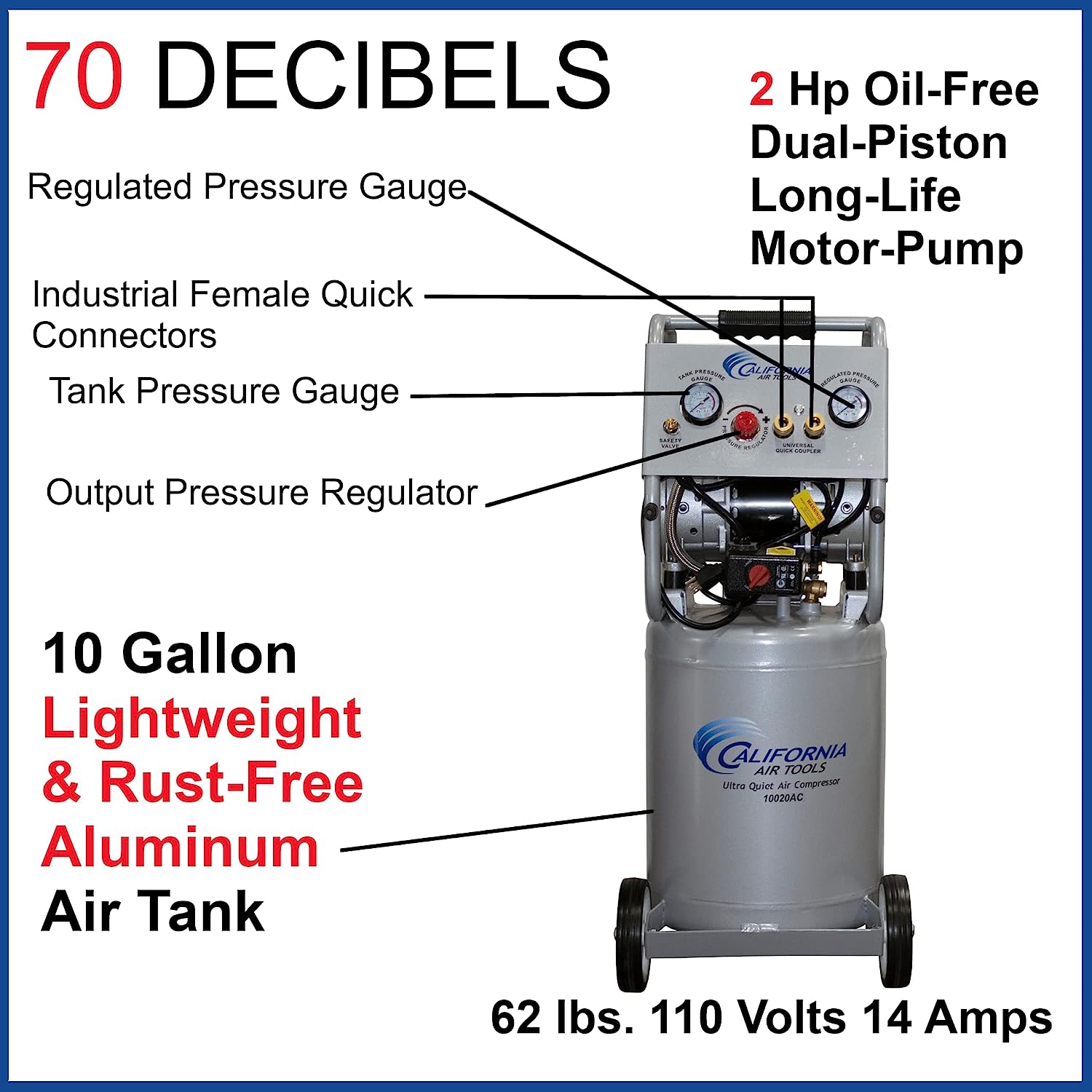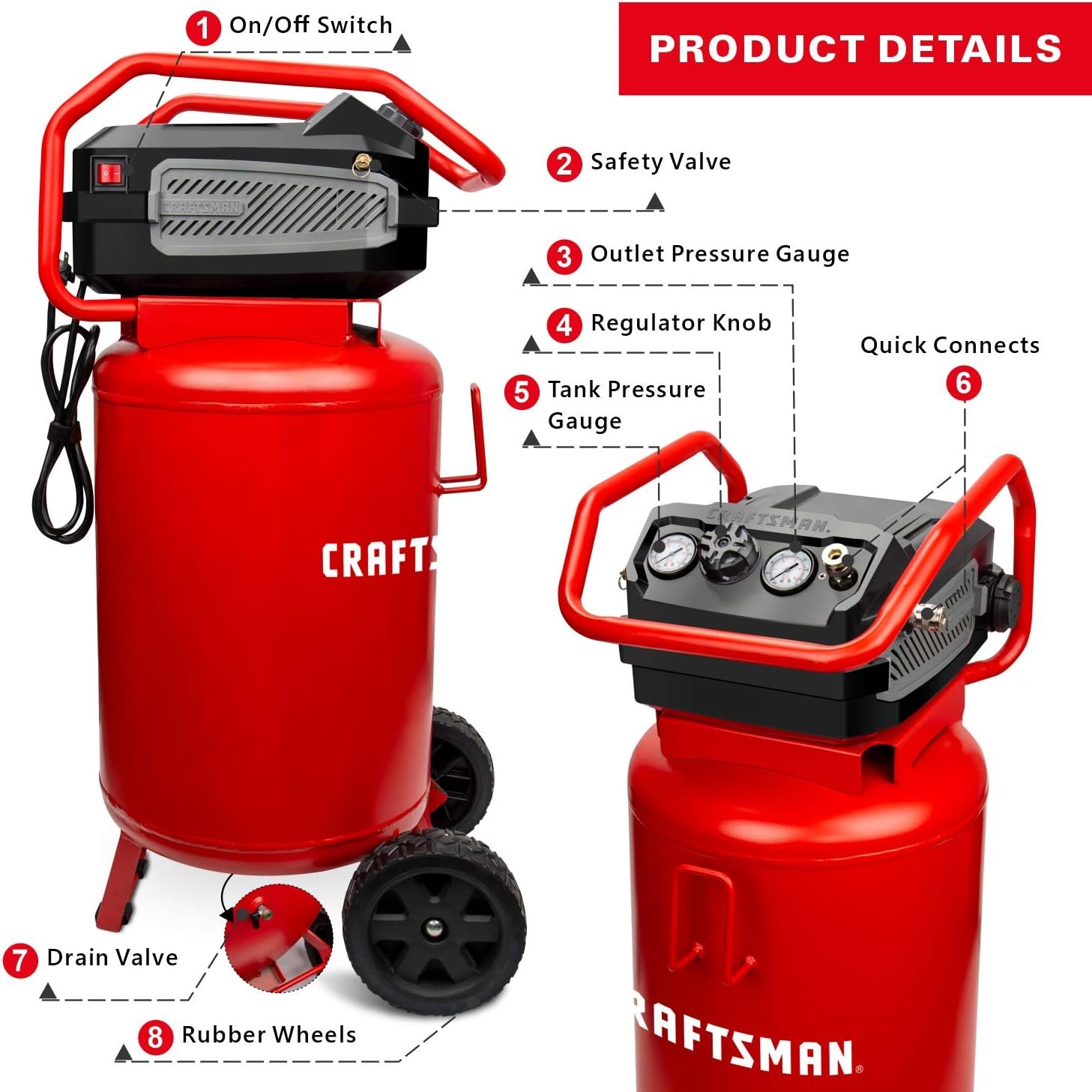When purchasing a new air compressor, it’s crucial to understand the importance of warranty. The right warranty can provide peace of mind and ensure that your investment is protected. But what kind of warranty should you be looking for? In this article, we will explore the key factors to consider when evaluating warranties for air compressors, helping you make an informed decision and choose the best one for your needs.
Understanding Warranty Basics
Before diving into the specifics of air compressor warranties, it’s important to have a basic understanding of what a warranty is. In essence, a warranty is a guarantee provided by the manufacturer or retailer that promises to repair or replace a product if it has defects or fails to perform as intended within a certain period of time. This serves as a form of protection for the consumer, providing peace of mind and ensuring that their investment is safeguarded.
There are different types of warranties available, each with its own coverage and terms. The type of warranty that comes with an air compressor can greatly impact the level of protection and support that the consumer receives.
The Role of Warranty in Buying an Air Compressor
When it comes to purchasing an air compressor, having a warranty in place is crucial for several reasons. Firstly, a warranty serves as protection against manufacturing defects. It assures the buyer that if their air compressor malfunctions or breaks due to faults in materials or workmanship, it will be repaired or replaced at no additional cost.
Additionally, a warranty plays a vital role in safeguarding the investment made in a high-cost piece of equipment like an air compressor. Since air compressors can be quite expensive, having a warranty acts as a safety net, providing financial security and peace of mind.
Furthermore, a warranty instills confidence and trust in the product. Knowing that the manufacturer or retailer stands behind their air compressor and is willing to back it up with a warranty gives consumers the assurance that they are purchasing a reliable and high-quality product.
Factors to Consider in an Air Compressor Warranty
When evaluating an air compressor warranty, there are a few key factors to consider. The length of the warranty is an important aspect to take into account. Longer warranties generally indicate that the manufacturer or retailer has confidence in the durability and performance of their product.
It’s also crucial to understand what exactly the warranty covers. Some warranties may only cover specific parts or components, while others may offer more comprehensive coverage. Knowing the details of the warranty coverage can help consumers make informed decisions and ensure that their specific needs and concerns are addressed.
Lastly, understanding the procedure for making warranty claims is essential. Knowing the steps to take and any requirements or documentation needed can make the warranty process smoother and more efficient if an issue with the air compressor arises.
Types of Warranties for Air Compressors
There are three main types of warranties that are typically offered for air compressors: manufacturer’s warranty, retailer’s warranty, and extended warranty.
A manufacturer’s warranty is provided directly by the manufacturer and covers defects in materials or workmanship. It is usually included with the purchase of an air compressor and helps protect the buyer from any manufacturing faults that may occur.
A retailer’s warranty, on the other hand, is offered by the seller of the air compressor. Although it may have similar coverage to a manufacturer’s warranty, it is important to note that the terms and conditions, as well as the duration of the warranty, may vary between different retailers.
Lastly, an extended warranty is an optional add-on that can be purchased separately. It extends the coverage of the manufacturer’s or retailer’s warranty beyond the original period. Extended warranties can provide additional peace of mind and may be worth considering for those who want extra protection for their air compressor investment.
Manufacturer’s Warranty in Depth
A manufacturer’s warranty is an integral part of the purchase of an air compressor. Typically, a manufacturer’s warranty covers defects in materials and workmanship for a certain period of time from the date of purchase. This means that if any issues arise due to faulty materials or craftsmanship, the manufacturer will repair or replace the air compressor at no additional cost to the buyer.
However, it is important to be aware of the limitations and exclusions that may be included in a manufacturer’s warranty. These limitations could restrict coverage for certain components or parts, normal wear and tear, or damage caused by misuse or improper maintenance. Understanding these limitations is crucial in order to fully grasp the scope of coverage provided by the warranty.
If an air compressor fails while still under the manufacturer’s warranty, there are specific steps that should be taken. It is important to document the issue by taking pictures or videos, as this can provide valuable evidence to support the warranty claim. The next step is to contact the manufacturer or their authorized service center to initiate the claim process. Following the manufacturer’s instructions and providing any necessary documentation will help ensure a smooth and successful warranty claim.
Retailer’s Warranty Explained
While a retailer’s warranty may have similarities to a manufacturer’s warranty, it is important to note the differences. A retailer’s warranty is provided by the seller of the air compressor and offers similar coverage as a manufacturer’s warranty, but with potential variations in terms, duration, and specific conditions.
One key difference is that a retailer’s warranty may have a shorter duration compared to a manufacturer’s warranty. Additionally, the terms and conditions of a retailer’s warranty may be tailored to the specific retailer’s policies and procedures, so it is important to carefully review and understand these details.
When it comes to leveraging a retailer’s warranty, it’s important to contact the seller directly in case of any issues. They may have their own service center or may direct you to the manufacturer’s service center. Understanding the specific procedures and requirements for making a warranty claim under a retailer’s warranty is crucial for a successful resolution.
The In’s and Out’s of Extended Warranties
Extended warranties are optional coverage plans that can be purchased separately at an additional cost. They provide an extension of the warranty coverage offered by the manufacturer or retailer. While extended warranties can offer peace of mind, it’s important to consider the advantages and disadvantages before making a decision.
One advantage of an extended warranty is that it prolongs the coverage period, providing an additional layer of protection for a longer period of time. This can be especially beneficial for those who plan to use their air compressor for extended periods or in demanding environments.
However, it is essential to weigh the cost of the extended warranty against the potential benefits. Extended warranties can be quite expensive, and if the air compressor is already covered by a robust manufacturer’s or retailer’s warranty, the additional cost may not be worth it.
Determining if an extended warranty is worth it for your air compressor requires careful evaluation of your specific needs, usage, and the existing coverage provided. It may be helpful to consider factors such as the reliability of the brand, the expected lifespan of the air compressor, and any potential risks or challenges that may arise during its use.
Navigating Warranty Claims for Air Compressors
In the unfortunate event that an issue arises with an air compressor and a warranty claim needs to be made, understanding the process is essential for a smooth resolution.
The process for making a warranty claim will depend on the specific warranty type and the policies of the manufacturer or retailer. Generally, it involves contacting the appropriate party, providing relevant details about the issue, and following the instructions provided.
Common difficulties in warranty claims can arise when there is a lack of documentation or evidence to support the claim. It is important to document any issues with the air compressor promptly using photos, videos, or written descriptions. This evidence can greatly support the warranty claim and help expedite the resolution process.
Additionally, it is important to adhere to any specific requirements or procedures outlined by the warranty provider. Failure to follow the correct steps may result in delays or denials of the warranty claim. Reading and understanding the fine print of the warranty, including any stipulations or limitations, can help avoid potential pitfalls during the claim process.
Tips for successful warranty claims include maintaining a record of the purchase, keeping all relevant documentation, and promptly reporting any issues that arise. Staying organized and proactive throughout the warranty claim process increases the chances of a successful resolution.
Understanding Warranty Terms and Conditions
Reading and interpreting the fine print of a warranty can seem daunting, but it is crucial to understanding the extent of the coverage and any limitations or exclusions that may be included. By understanding warranty terms and conditions, consumers can make informed decisions and avoid potential pitfalls.
Key terms and phrases to look out for in air compressor warranties include “defects in materials and workmanship,” “normal wear and tear,” “misuse,” “improper maintenance,” and “excluded components or parts.” These terms indicate what is covered, what is not covered, and any specific conditions that may affect warranty coverage.
A good warranty should provide clear and concise information about the coverage, duration, and procedures for making a claim. It should also outline any steps or precautions to take in order to maintain the warranty coverage, such as regular maintenance or authorized service requirements.
Final Thoughts on Air Compressor Warranties
In conclusion, the role of a warranty in buying an air compressor cannot be overstated. A warranty provides protection against manufacturing defects, safeguards the investment in a high-cost piece of equipment, and instills confidence and trust in the product.
Considering factors such as the length of the warranty, what it covers, and the procedure for making claims is essential when evaluating air compressor warranties. Understanding the different types of warranties available, such as manufacturer’s warranties, retailer’s warranties, and extended warranties, allows consumers to make informed decisions based on their specific needs and requirements.
Navigating warranty claims can be a smoother process by being proactive, maintaining documentation, and following the specific requirements outlined by the warranty provider. Understanding warranty terms and conditions, including key terms and phrases, helps consumers fully comprehend the coverage and any potential limitations.
Ultimately, a warranty plays a crucial role in the overall value, risk management, and long-term use of an air compressor. It provides peace of mind, financial security, and reassurance that the buyer’s investment is protected. By understanding warranty basics and exploring the specifics related to air compressor warranties, consumers can make informed decisions and choose the right warranty for their needs.
Joey has over 15 years of experience in the air compressor industry. As a senior test manager at Pneumatic Performance Labs, he oversees all testing and evaluation of air compressors. Known for his technical expertise and leadership, Joey has built a strong team of engineers who provide trusted third-party testing capabilities to air compressor companies nationwide.









